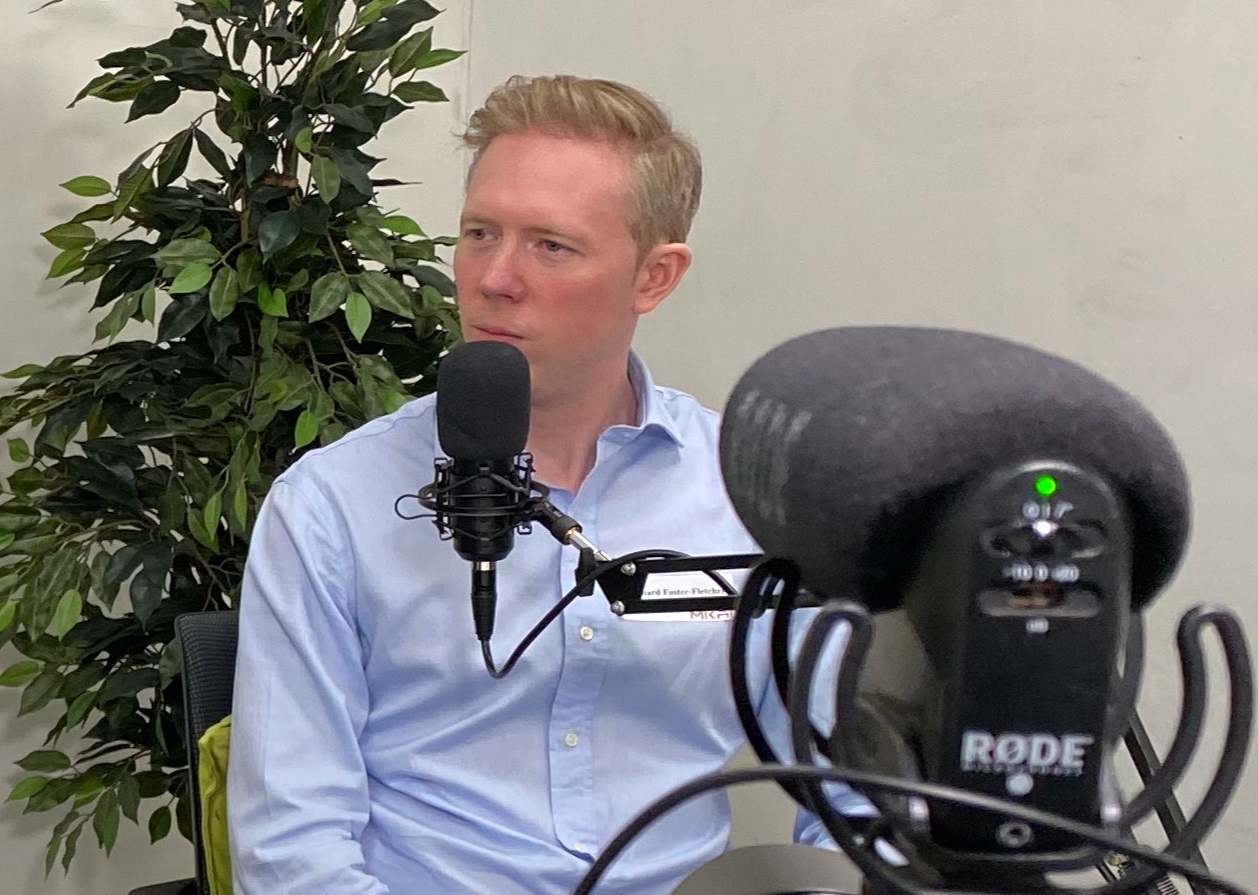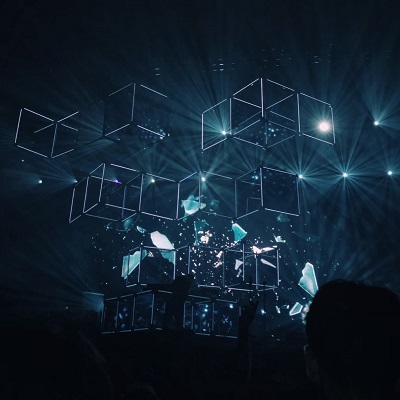By Richard Foster-Fletcher, Executive Chair at MKAI
11/01/2022
Richard Foster-Fletcher from MKAI talks to us about artificial intelligence and how it can play a key role in creating a more sustainable future.
Please tell us a bit about yourself.
I'm 39 and have lived in Milton Keynes for 14 years now. Two and a half years ago I decided to do my own thing in business, so I left a large technology corporation in 2019 and formed Milton Keynes Artificial Intelligence (MKAI). Over that period, MKAI has developed into an inclusive community and network focusing on how we support people and organisations in adopting technologies responsibly and ethically. In doing so, we promote the advantages that technology offers us as business leaders and citizens, but we work towards mitigating against the disadvantages, such as the digital divide, lack of inclusion or the biases and problems in data. That's what I'm passionate about.
Please tell us more about MKAI.
Whilst our roots are in Milton Keynes, we've become a global organisation. We have a team of nine colleagues all over the world, including Brazil, the Philippines, Serbia, the UK, India and other places. We serve a community of around 500 enthusiasts in artificial intelligence, including data scientists, but also teachers and parents, community leaders – all sorts of people who take a great interest. Success for us is being a path for somebody to learn more about this technology, the upsides and the risks, and contribute to the conversation, even though they're not an expert or not in the industry.
We are lucky enough to be working on a number of projects, including locally with the council, Milton Keynes College and the new MK university, MK:U.
On the global stage, we're talking to the UK Government about bringing more diversity, inclusion and diverse perspectives to AI risk. With that in mind, we've agreed to write a book with Bloomsbury that will be out in 2023 about the economics of digital trust. We’ll be including some information about new technologies, such as the Metaverse and virtual reality, and how digital trust could play out quite differently in the next generation of spatial computing.
Where do you feel AI can have the most impact when it comes to developing greener communities?
I think people get excited about AI for greener communities and the wider climate change challenges because, for the first time ever, we have massive datasets, and that's seen as a great advantage compared to, say, 10 or 20 years ago. What AI offers on those datasets is the ability to do three things: to measure, to optimise and, to some degree, design.
Now we have access to Earth observation data, we have huge amounts of satellite data that we can use. And, with this data, AI helping us to build simulations or create digital twins of equipment, factories, cities and even countries. One example of this is to provide early warning signals for extreme weather to allow for climate change adaptation. Another different example is that, when we are developing advanced materials, we can simulate the pressure, including the impact and breaking points of a material, using artificial intelligence to get the right density, materials and meshes. This radically reduces the amount of wasted materials.
In cities, parks, offices and laboratories – all places really – we can simulate, test and design things that will be better, greener and have better adoption, without having to waste time, money and resources.
What do you see as some of the biggest areas for innovation in this space?
The optimisation area is crucial. AI is now able to take in images and video and understand what objects are and how to react. That’s the kind of technology we see in the early stage autonomous vehicles that we have, but it is also used in agriculture to enable precision farming, where each plant or crop is given the exact elements that it needs and nothing more. This is a vast improvement on blanket covering the whole fields with nitrates and chemical fertilisers that run off into our water supplies – so, again, AI can help us increase efficiency and reduce waste.

What are the challenges you expect to see in getting these ideas to wider acceptance?
There is a red herring problem with technology. If we look at COP26 that recently took place in Glasgow, almost all the global leaders are putting out their grand plans to become net zero countries or significantly reduce emissions by 2030, by 2050, by 2060. The problem with these long-off dates is that you have to be very careful that the leader of a country isn't thinking ‘if I say 2050, it'll be fine because some great technology will come along before then and save us’. That is not the right thinking at all!
A well-known eminent scientist told my father, an environmental campaigner, 26 years ago ‘stop worrying about climate change because nuclear fusion is just around the corner’. Now we're still hearing the same thing, so when it comes to technologies like carbon capture and nuclear fusion, we absolutely must not rely on these, and we absolutely must not let governments convince us that these are the answers, because they're probably not. They're probably not going to happen any time soon and, more importantly, it should not be how we build our strategy.
What the governments all around the world need to do, in my opinion, is three things. Firstly, they need to implement carbon tax. Secondly, they need to implement accountability processes on companies for the products that they create to ensure that products are genuinely recycled, repurposed or reused. Thirdly, there is still a huge amount of lack of understanding and apathy in all of us, so we have to implement rules and laws that acknowledge that.
These three things will happen, and then that's when we’ll get far more acceptance of a lot of the technologies that startups are building now. We can't reduce if we can't measure, and there are some great startups that can, and they're trying to help companies, countries and people to understand what they're using and what emissions they are responsible for eradicating.
What do you think will be the big AI trends in 2022?
2022 is going to be the year of the Metaverse. AI trends are completely connected to our social and political trends and we know it's going to be another interesting, if perhaps turbulent, year ahead of us, with Covid, climate issues etc – so I think there'll be some exciting developments in virtual remote technologies. We're seeing the large technology companies put out their first instances of augmented reality and virtual reality devices, and there is a big race now to become the leader in that space.
I also think some of the mindset trends of technology are going to be very interesting this year. I feel that in 2021 we recognised that trust in technology has gone down significantly, with social media and so on, and companies have got to win back that trust.
If you think about having a meeting in the Metaverse, using the spatial app to go in through VR headsets – you've got to go into an environment which somebody has to own. Then you need to be able to buy assets and you need to have elements of digital twins from the world and digital assets. Most importantly, you need interoptibility; nowadays it's very easy to change bank, change mobile phone contracts and so on. But technology companies have got away with making it hard to switch providers, this will change and technology will have to become seamlessly interoptible for the Metaverse to work. How are tech companies going to react to this? I think that's one of the greatest challenges that tech faces this year with AI, to rebuild consumer trust and move away from trying to monopolise markets and technologies.
How would you say people could engage with green AI now?
There are personal apps now that you can use to start measuring your carbon footprint.
One of the ways that we can really engage now is to think differently about our lives and our consumption, and I think we've got solid evidence that more stuff doesn't make us happier.
We've also got to be proactive – climate science is confirmed now and it's real. We can start to use green technology to measure and decide which areas don't really matter to us, in terms of travel for example, embracing virtual technologies so that we don't drive as much, and embracing vegetarianism.
What are MKAI’s plans for this year?
We've got packed event and project schedules. We're blessed to be working with Milton Keynes College until March on the SkillsHub:MK. We’re really excited to be empowering local companies with cognitive technologies, including artificial intelligence, drones, robotics, and mixed realities. We’re also working with Roz Bird at Silverstone Technology Park on Catalysing AI projects for the residents – it’s exciting to be working with innovative centres like that.
On a larger scale, we formed three centres – the Centre for Digital Trust, the Centre for Digital Citizenship and the Centre for Digital Inclusion – and will be releasing research papers and articles in support of these areas.
We also hope to develop some systems and platforms this year, with some grants or funding, to look at how we can support and address the risks in AI, particularly around exclusion and biases.


